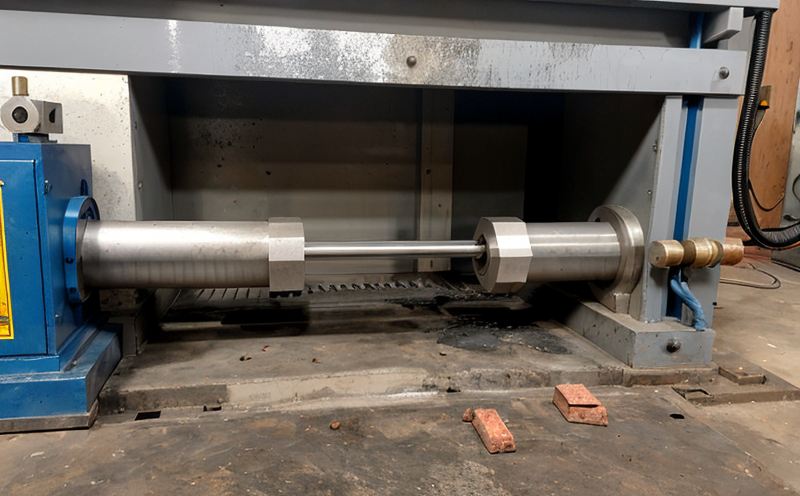ISO 11130 Intergranular Corrosion Testing
The ISO 11130 standard specifies a procedure for determining intergranular corrosion in stainless steels and other materials susceptible to this form of degradation. This testing method is crucial for ensuring the reliability and longevity of critical components, especially in industries such as aerospace, automotive, marine, and medical devices where material integrity directly impacts safety.
Intergranular corrosion (IGC) occurs when certain alloys, particularly stainless steels containing chromium and nickel, suffer localized corrosion at grain boundaries rather than the overall microstructure. This phenomenon is exacerbated by welding processes, heat treatments, or specific chemical environments. The ISO 11130 test helps identify these vulnerabilities early in the production process.
The testing involves preparing a specimen by etching its surface to reveal the grain structure, followed by immersion in an acidic solution that promotes IGC if it is present. The results are then visually inspected and graded according to predefined criteria. This method ensures consistent and repeatable evaluation of intergranular corrosion susceptibility.
Understanding the mechanism behind this type of corrosion is essential for selecting appropriate alloys, heat treatments, and protective coatings. By employing ISO 11130 testing, manufacturers can prevent costly failures due to IGC, thereby enhancing product durability and safety standards. This standard plays a pivotal role in quality assurance by providing a standardized approach to evaluating intergranular corrosion susceptibility.
Test Procedure
- Prepare the specimen by etching its surface with an appropriate reagent to reveal grain boundaries.
- Immersion of the etched specimen in an acidic solution designed to promote intergranular corrosion if present.
- Vigorous rinsing and drying of the specimen after immersion.
- Visual inspection of the specimen under specified magnification, comparing the results against reference charts for grading.
The visual assessment is critical as it allows trained personnel to identify areas affected by IGC. The standard specifies detailed criteria for different grades and severities of corrosion, which are essential for interpreting test results accurately.
Eurolab Advantages
At Eurolab, we pride ourselves on providing comprehensive metallurgical testing services that cater to the diverse needs of our clients. Our expertise in ISO 11130 Intergranular Corrosion Testing ensures precision and reliability, aligning with international standards.
We have a team of highly skilled professionals who are well-versed in all aspects of this testing method. Our advanced facilities include state-of-the-art equipment that guarantees accurate results every time. Additionally, our commitment to quality is reflected in our ISO 17025 accreditation, ensuring that all tests meet the highest industry standards.
Our clients benefit from our extensive experience and deep understanding of metallurgical testing. We offer a full range of services, including specimen preparation, testing, and detailed reporting. Our flexible approach allows us to tailor our solutions to meet specific project requirements, whether they involve small-scale research or large-scale production.
Moreover, we provide robust data analysis capabilities that help interpret test results effectively. This ensures that clients can make informed decisions about their materials and processes, leading to improved product quality and customer satisfaction.
Why Choose This Test
- Precise identification of intergranular corrosion susceptibility in stainless steel and other susceptible alloys.
- Consistent and repeatable evaluation method for quality assurance.
- Standardized approach ensuring compliance with international standards (ISO 11130).
- Supports critical industries by enhancing product durability and safety.
- Aids in selecting appropriate alloys, heat treatments, and protective coatings to prevent costly failures.
- Provides detailed grading criteria for different levels of intergranular corrosion.
- Trained personnel ensure accurate visual inspections.
Competitive Advantage and Market Impact
Evaluating the susceptibility to intergranular corrosion is a vital step in ensuring product reliability, especially for industries where material integrity directly affects safety. By leveraging ISO 11130 testing, manufacturers can identify potential issues early on, thus preventing costly failures and recalls.
Our ability to perform this testing accurately and consistently gives us a significant competitive edge. It enables our clients to stay ahead of regulatory requirements and market demands by offering products that meet the highest quality standards. This not only enhances customer trust but also ensures long-term business success.
In addition, our comprehensive metallurgical testing services contribute to sustainable development goals by promoting the use of materials with enhanced durability and reduced environmental impact. By preventing unnecessary waste through early detection of potential failures, we support a more resource-efficient manufacturing process.





